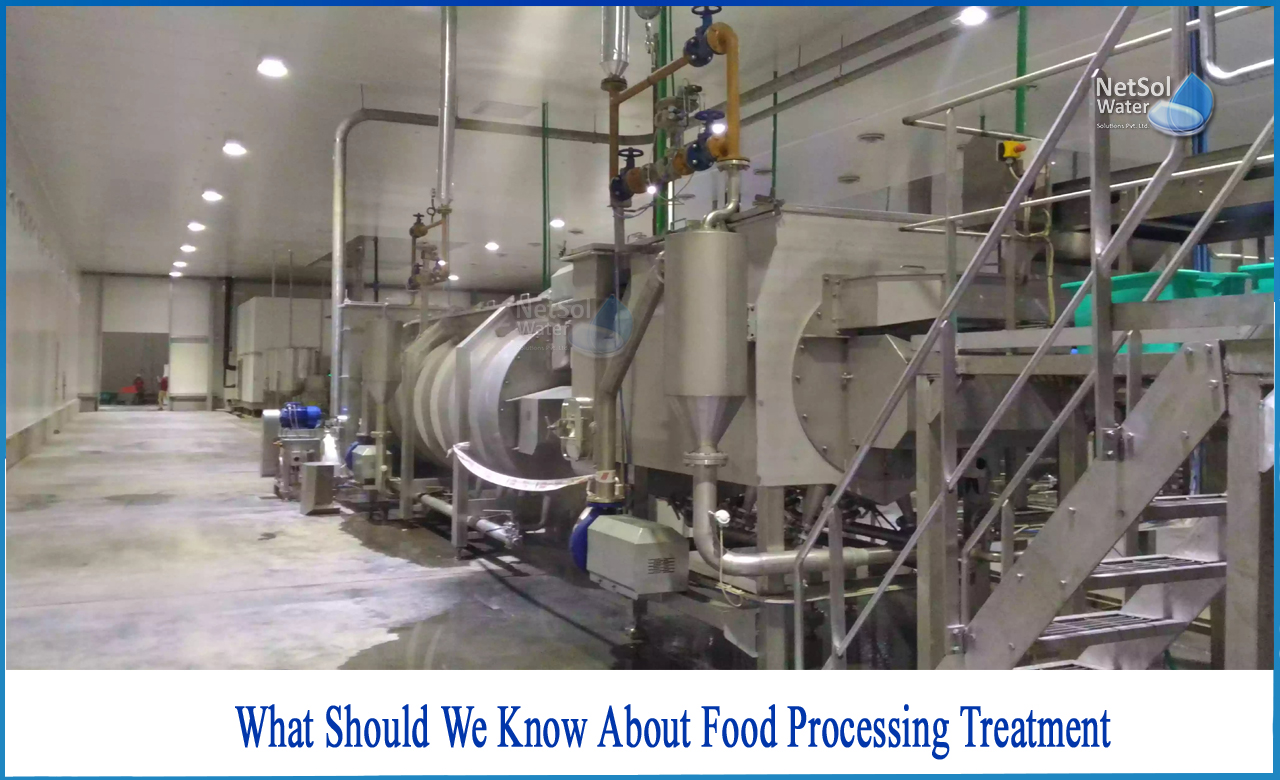What should we know about Food processing treatment?
In terms of production, consumption, export, and future possibilities, India's food processing sector is one of the world’s largest. Because of the variety of goods created, as well as the varied fruits, vegetables, and raw materials used, the wastewater generated by this industry has a wide range of strength and features. The use of many preservatives, salts, colour, perfumes, oil, sugar, gelatine, and other ingredients, which are added according to the production requirements of the goods, contribute to the pollutant load in food processing wastewater or effluent.
Main sectors of food processing industry
Food processing is separated into four key categories:
1. Meat,
2. Poultry, and seafood processing,
3. Bottling and beverage production; and
4. Dairy businesses
For food processing, all of these industries use a lot of water. Water is employed as a component, an initial and intermediate cleaning source, a reliable raw material transportation conveyor, and the primary sanitizer for industrial machinery and regions. A significant portion of these waters are potential wastewaters that must be treated before being released into the environment.
Food Processing waste water treatment plant
Environmentalists all around the world are concerned about the quality and volume of wastewater produced by food processing enterprises. However, the quantity and quality of effluent differs depending on the type of industry and food processing. While some food companies choose to release wastewater during a specific time period, others prefer to discharge dirty water throughout the year, which has become a serious concern. All wastewater in food processing manufacturing plants is treated using a novel treatment method known as food processing wastewater treatment.
Previously, wastewater from food processing companies was shown to be an extreme fusion of oils, particles, grease, fats, surfactants, and biological components that might clog motorised filtration machines and degrade biological organic systems, disrupting functions and draining resources. However, with the development of effective food processing wastewater treatment formulas, managing dirty water and refining it before releasing to outside water resources has become a little easier.
How to find out right waste water treatment for food processing industry?
The food processing business encompasses a wide range of divisions and operations involved in the production of nutritious foods and beverages. Fruit and vegetable production, beverage packing, dairy and cheddar manufacturing, meat preparation, egg washing, and other industries are all covered, therefore the guidelines for food processing wastewater management vary.
Different types of food processing wastewater treatment includes anaerobic processing to produce methane gas or high-impact water salvage drugs that produce pure and refined water for businesses. When it comes to setting up wastewater treatment, companies must deal with a limited amount of space and a large amount of wastewater.The Biological Oxygen Demand (BOD) created when food waste reaches the wastewater is one of the most difficult challenges for food processors. The denser the treatment, the greater the BOD content in the wastewater.
Conclusion
Moderate to high BOD, high COD, high dissolved and suspended particles, very high nutrient content such as phosphorus, nitrogen, and heavy oil and grease define waste waters from food processing companies. Non-chemical biological treatment, such as anaerobic treatment, is compatible with this effluent.
For this business, aerobic biological treatment in the form of high-rate trickling filters or activated sludge plants is usually sufficient. However, sophisticated biological treatments such as moving bed bioreactor (MBBR) and membrane bioreactor (MBR) are recommended instead of the traditional activated sludge procedure due to the intermittent nature of wastewater discharge or higher shock loadings (ASP).
Using advanced treatment, such as Ultrafiltration (UF) and Reverse Osmosis (RO), the treated effluent can be recycled at a level comparable to food-grade water. Alternatively, a Membrane Bioreactor (MBR) should be used in place of MBBR to produce industrial-grade water with added R.O. to produce food-grade water.
Netsol Water is Greater Noida-based leading water & wastewater treatment plant manufacturer. We are industry's most demanding company based on client review and work quality. We are known as best commercial RO plant manufacturers, industrial RO plant manufacturer, sewage treatment plant manufacturer, Water Softener Plant Manufacturers and effluent treatment plant manufacturers. Apart from this 24x7 customer support is our USP. Call on +91-9650608473, or write us at enquiry@netsolwater.com for any support, inquiry or product-purchase related query.



